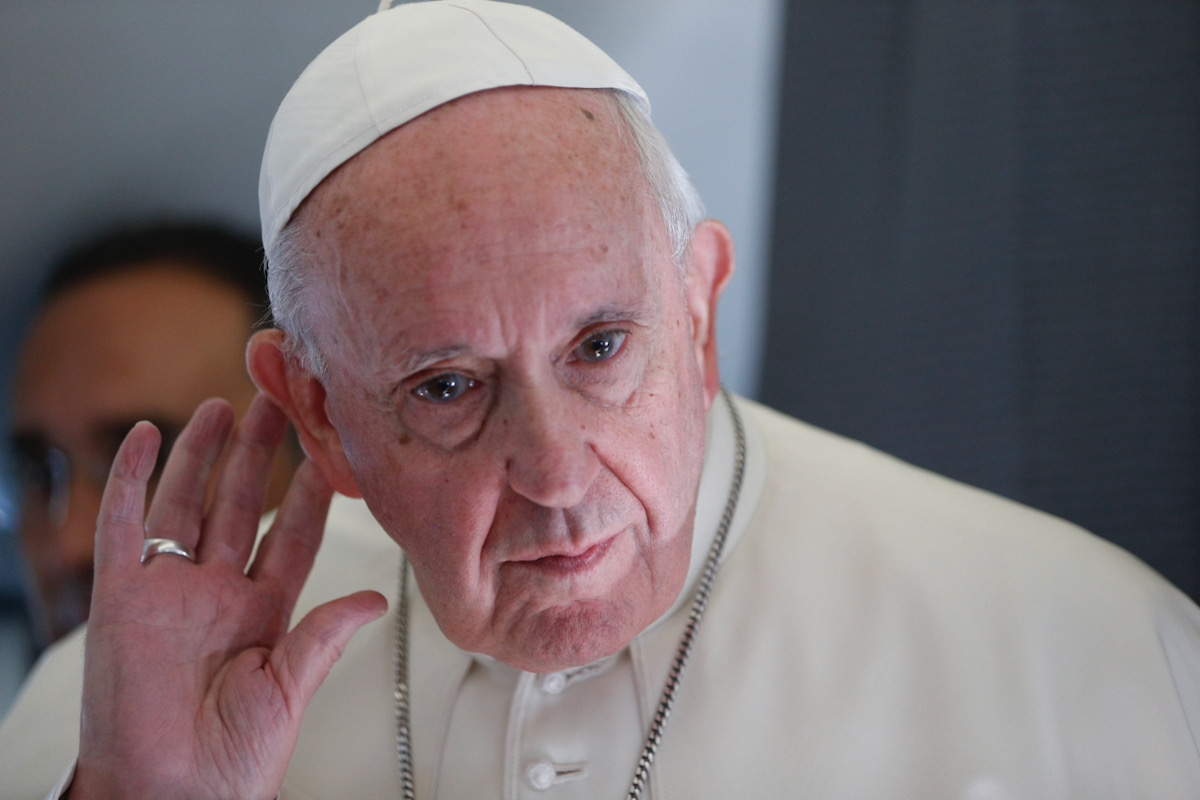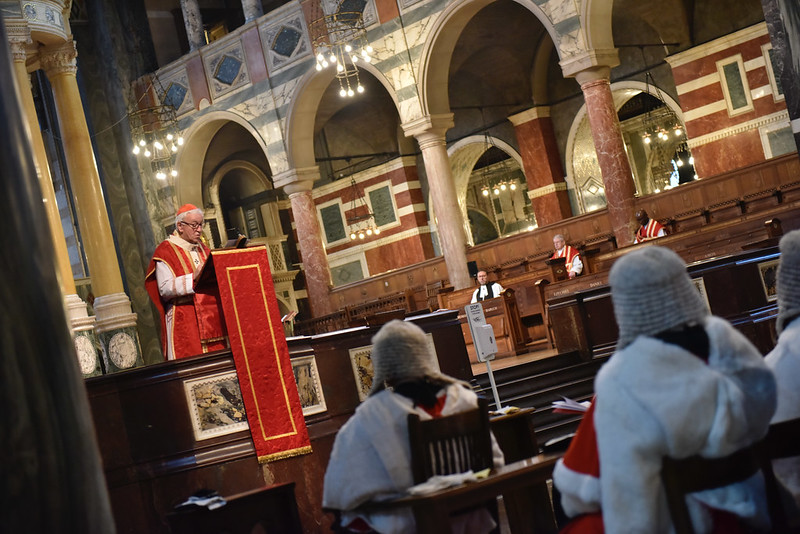In a homily delivered today at the “Red Mass” in Westminster Cathedral, Cardinal Vincent Nichols described the High Court judgement against Heidi Crowter an “offence” and called on the court to recognise the “innate dignity” of human life.
Heidi Crowter, who has Down’s syndrome, and Máire Lea-Wilson, who has a son with Down’s syndrome, pursued joint legal action against the government for permitting abortion up to birth for non-fatal foetal anomalies such as Down’s syndrome.
Mrs Carter and Mrs Lea-Wilson argued that the current UK abortion law is “downright discrimination” and violates the ECHR (European Convention on Human Rights), including the right to life. However the two judges assessing the case rejected this argument.
In his homily, delivered to leading members of Britain’s legal community, Cardinal Nichols made the case, and the issue of human dignity, the centrepiece: “It seems to me that the arena in which the administration of the law mainly takes place is that of human rights, and not of human dignity. Of course, dignity and rights are deeply connected, philosophically. But the law deals with codified rights rather than innate human dignity. Here lies the tension with which you live and which we bring before the Lord in this Mass. Permit me one example: the recent case of Heidi Crowter.
“She argued that the provisions of the current abortion law are an offence against her in as much as that law allows for abortion up to full term if there are substantial risks that, if the child were born, ‘it would be seriously handicapped’. Heidi is a person with Down’s Syndrome. The judgement of the High Court found that the current Abortion Act was not unlawful as it aimed to strike a balance between the rights of the unborn and the rights of the women.
“I fully understand Heidi’s cry: ‘The judges might not think [the law] discriminates against me, the government might not think it discriminates against me, but I am telling you I feel discriminated against.’ Her cry is rooted in her instinct for the innate dignity that is hers as a human being, made in the mage and likeness of God. This is a line of argument that is not easy to include in a judgement over conflicting rights, which has no wider or prior frame of reference.”
The homily was delivered as part of the traditional “Red Mass”, so called because of the red vestments worn by the celebrants to mark the feast of Pentecost. The mass is celebrated every year on October 1, coinciding with the start of the traditional Michaelmas Law Term, for members of the legal profession, requesting the guidance of the Holy Spirit to help those who may be given grave responsibilities act with both justice and mercy.
The Cardinal said: “Every Mass begins with an admission of failure. This Mass is no exception. Though personal fault is of course the focus of our confession of sin, I have in mind also the awareness that the administration of the law is inevitably imperfect and limited.”
He said tensions in society and culture are being laid bare with, it seems, increasing bluntness. “Free, reasoned discussion is difficult to sustain, due in part to the ways in which views, convictions, resentments, are expressed, and in part to an increasing practice of listening only to those with whom we agree. The echo-chambers of social media can contribute to the corrosion of intelligent discourse and respectful dialogue.
“This undermining of the deeper bonds of society is often expressed in the language of individual rights. There is, of course, a proper desire for the exploration of such rights, for a recovery of those that have been lost, or an establishment of those that have never been recognised. And this often becomes the work of our courts of law. Often you are faced with the fierce passion of resentment, recently described to me as ‘the great accelerator of strife and mayhem’.”
The contribution of faith lies in the insistent proclamation of the transcendent dimension of the human person, of the truth that every person is made in the image and likeness of God, comes from God and is destined for God. “This truth of humanity is the source of our strong and unrelenting affirmation of the innate dignity of every human being. This is the witness of our faith: that every person is endowed with a dignity which rises from the Creator, and that without that horizon the dignity, and the duties associated with it, may easily be lost. Without that horizon, the esteem attributed to people will depend not on that first and fundamental criterion, but on their perceived usefulness, or on their access to a claim of rights.
“It seems to me that the arena in which the administration of the law mainly takes place is that of human rights, and not of human dignity. Of course, dignity and rights are deeply connected, philosophically. But the law deals with codified rights rather than innate human dignity. Here lies the tension with which you live and which we bring before the Lord in this Mass.”
Cardinal Nichols concluded his sermon with a prayer: “So today we rightly implore the Holy Spirit to guide and shape our best efforts that through the great blessing of our faith, we, in our turn, may be instruments of that justice and witnesses to its integrity. May God bless us this day for all that lies ahead. Amen.”



 Loading ...
Loading ...